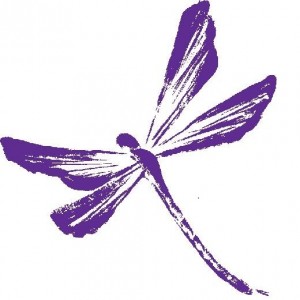Well, here we are in very unusual times indeed! In last month’s General Non-Fiction round up, I didn’t even mention Covid-19. It feels much longer than a month since all this began, yet in reality, things have changed dramatically for all of us in a very short period of time.
Our March reviews reflected a time before Covod-19 and lockdown life. I’ll be curious to read how you’re all fairing in your April reviews.
Six books were reviewed by seven different reviewers. One book received three separate reviews, something I don’t see a lot of in the non-fiction area.
In January 2019, author R. J. (Ruth) Amos challenged herself to write a short story every day for thirty days. Using prompts found online, R. J. pushed her creative powers to the limit, writing a full story with a beginning, middle, and end, every day.
Here, for you, is the collection of weird and wide-ranging, fun and fantastic stories. Also included are the story prompts that Ruth used so that you too can stretch your imagination.
Budgerigar by Don Theresa Smith Writes tells us that,
This book was surprisingly compelling reading. What I thought was going to be a fluffy collection of anecdotes about budgies and their besotted owners turned out instead to be a complete and thorough history of the little parrot, from bush budgie to…well, what they are now, which also forms an integral part of this history.
An important history of another kind is by the Gay’wu group of women. Song Spirals is reviewed by Denise Newton Writes.
My heart was full as I read this unusual and generous book. When I had finished, I felt two things: humility and gratitude. Along the way there were many ‘light bulb’ moments, when aspects of Yolŋu culture that had been confusing or which I had previously misunderstood, became a bit clearer.
Janine Rizzetti @ The Resident Judge Of Port Phillip read The Arsonist by Chloe Hooper during our recent devastating summer bush fire season. Although the damage to life, homes and our native wildlife is still an ongoing issue, the all-absorbing news that now surrounds coronavirus, has pushed the bush fire story into the back of our minds. Janine helps to remind us of the bigger picture and wider concerns.
This is an elegantly written book, conveyed without the mental anguish and ethical turmoil that marks the work of Helen Garner, another non-fiction writer drawn to writing about crime and courthouses. Hooper does not try to pathologize Sokaluk: she leaves that to the courtroom experts. Neither does she minimize the effect of Sokaluk’s actions on the people of Churchill. Instead, she leaves us with Shirley, who lost both her sons in the fire. As in her earlier book, The Tall Man, Hooper peels back the layers of contemporary Australian society, and reminds us – as if we have needed reminding this summer- that fire will continue (and even more) shape our view of ourselves as Australians.
If books such as Bri Lee’s Eggshell Skull, Meera Atkinson’s Traumata or Gabrielle Jackson’s Pain and Prejudice resonated with you, then this will also have something to offer. And if you are interested in the response to and the treatment of women’s pain, sexual violence, the credibility of survivors, the abuse of perpetrators, and the way in which all of this is managed through the judicial, political, medical and mental health spheres, this book will provide much food for thought.
This book is not a memoir. It’s more of a long-form medical essay with contextual personal reflections. Lucia writes about her own experiences of trauma and the effects this has had on her body, following this up with her battle for a diagnosis and subsequent surgeries and treatments. Rather than being driven by emotion, the content is presented in a logical manner and underscored by research. I honestly found the entire topic of trauma being stored in your body and manifesting itself physically in the form of illness utterly fascinating and compelling. So much of this book just made perfect sense.
I Choose Elena is a little book that really packs a punch. It hits where it hurts, and it examines issues of the utmost importance. Striking hard at the medical, healthcare, judicial, political and education system, along with society’s perceptions of violent attacks, rape, women’s health and wellbeing, Lucia Osborne-Crowley’s personal essay is a poignant meditation on trauma.
New mothers need support (Chapter 3) and that self-care is critical (Chapter 4). “We are not meant to do this alone”, she realised early in her new-motherhood. Indeed, the trickle-down effects of no support are immense, she said. And she’s right of course. Each generation does it differently, but each generation needs to recognise this important fact. It does take a village to raise a child. You are not a failure as a woman or a mother, if you can’t do it all because, in fact, you CAN’T do it all.
If you have a new mother in your life, this warm, practical, non-judgemental book is for her – and, it wouldn’t hurt dipping into it yourself for ways to help.
Until next month,
Happy Reading.
About Bronwyn: I have been a book blogger at Brona’s Books since 2009 and a bookseller (specialising in children’s literature) in Sydney since 2008. Prior to this I was as an Early Childhood teacher for 18 years in country NSW.
I joined the AWW team in 2015 as the History, Memoir, Biography editor. In 2017 I moved to the General Non-fiction page and in 2018 I picked up the role of editor of Poetry. You can also find me at The Classics Club as one of the new Gen 2 moderators.
 I taught myself to read when I was four by memorising my Dr Seuss books. I haven’t stopped reading since.
I taught myself to read when I was four by memorising my Dr Seuss books. I haven’t stopped reading since.
You can find me on Twitter @bronasbooks and Litsy @Brona.






Two non-fiction reads in one period for me – previously unheard of! I am slowly changing my reading up a bit. Thanks for the mentions.
Thanks Brona. I hadn’t heard of “I choose Elena”. And thanks so much for linking to Heidi Sze’s book as it is not something someone would come looking for on my blog!